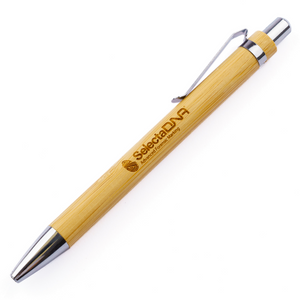Shipping has become more of a struggle globally over the last few years, the UK isn’t alone in its suffering of shortages and supply chain disruption. As consumers it can be frustrating, but for business owners, a shipping crisis could be devastating.
You may have noticed stockless shelves in the supermarkets, or your favourite products being unavailable. This isn’t because someone else got to it before you; or because the shops just don’t sell it anymore, it’s more often than not because somewhere, these products are delayed.
There’s a number of reasons for this, which I am going to explore further. However, this problem has been going on for so long now, it begs the question, is there even an end in sight? Or is this just how things are now?
We Know There is a Shipping Crisis, but Why is it Happening?
It feels like the world is in a state of pandemonium right now, but when you look back, it sort of always has been. From our leaders going to war, our climate changing beyond recognition, Earth is a temperamental place to live. Despite this, the shipping crisis has continued to bubble under the surface over the last few years; and as it comes to a head, countries across the world are seeing more and more empty shelves in their supermarkets. Businesses are running out of stock or going bust, consumers are missing out. To understand why, we have to look at whats been going on underneath it all.

Rising Fuel Prices!
One of the major reasons for shipping problems comes from soaring prices for Crude Oil. As the world emerged from the COVID-19 Pandemic, the global demand for crude has increased. Travel restrictions were lifted and the world was “open for business” again. This is great news, from a consumer point of view (If you can get there!). The sudden increase in demand has seen the worlds crude oil suppliers unable to cope with the mounting pressure. This has led to shortages the world over, the UK included. Not only are there shortages of stock, but prices for freight have gone up, due to the increase in fuel prices, demand for the products themselves and rule changes.
Freight is the transport of goods in bulk via truck, train, ship or aircraft. As the price of fuel skyrocketed, companies buckled under the weight of it all. They were unable to pay for shipping, so they had no stock, unable to make money, rendering their businesses untenable.
The United Kingdom also had their own set of issues on top of this as we came out of lockdown. There weren’t enough HGV drivers to deliver the fuel to the petrol stations up and down the country, and announcement of this meant that consumers across the nation stocked up for the long-haul, filling their tanks and all their jerry-cans to a point that some stations ran out completely.

Why was there an HGV Driver Shortage?
There was a number of reasons that our numbers were lacking when it came to HGV drivers. One of the main reasons being Brexit; the new rules that came into effect and how that changed where people could live and work.
There was a year of transition from 31/01/20, the new rules coming into effect from the 01/01/21. This transitionary year was to prepare all countries involved for the changes.
EU and non-EU nationals alike had to apply for a Skilled Worker Visa; which allowed some people to remain settled in the UK, but not all. This is due to the points system implemented by the UK which meant that not all workers met the criteria to stay.
A significant number of our HGV drivers were from the EU who didn’t meet the criteria, which meant that we lost them during the Brexit transition period. A big setback for an already crumbling industry.
Then COVID-19 hit, and the country seemingly ground to a halt. A lot people from overseas that had been working in the UK returned home to be with family. As we emerged from Lockdown, and the transition year ended; they found they weren’t able to return to the UK at all. This was another massive blow to the many struggling industries in the UK. Haulage and shipping wasn’t the only industry that suffered, food, farming and factory suffered as well, amongst other sectors.
What Happened Next?
The driver shortage quickly began to cause delays at UK Ports and other shipping facilities. There were thousands of shipping containers coming into docks across the country and no one to deliver the products; meaning the products inside the containers just sat there, waiting.
Talk of shortages in the media led to mass panic in the shops, consumers bulk buying and supermarket shelves being emptied.
Due to new customs rules and regulations. Delays at the boarders became a problem due to new customs forms as well, with some drivers lacking the appropriate information when reaching the channel crossing causing major backlogs across the EU.
Other contributing factors to the driver shortage was COVID-19 itself, what with furlough which saw millions of UK citizens on a stay-at-home order, the government having to pay our wages so we could still afford to live. The workforces not asked to stay at home (like delivery drivers, shop workers, NHS staff and factory workers) suffered staff shortages due to ill health or COVID-19 outbreaks, causing entire factories to shut down or staff numbers to fall dramatically. All of this contributed towards companies losing customers and money, many businesses went bust and had to close down permanently; others had to make redundancies.
How can we fix the Shipping Crisis?
The shipping crisis had been looming overhead for a while, especially with the introductions of new rules post-Brexit. However, this doesn’t have to be a permanent problem that we just get used to, and the British Government began to swiftly implement changes intended to fix the broken supply chain. They changed the HGV drivers test to make the process quicker, provided funding for people wanting to get their HGV licence and even provided temporary visas to EU citizens with the appropriate licences. Food Delivery visas will end at the end of February 2022 and Fuel delivery visas will run out at the end of March 2022. They also extended tax relief for the haulage industry and made military personnel available to deliver fuel.
While these temporary fixes made positive change quickly and saw us through the late witer of 2021 into 2022; we can’t be sure that the issue has gone away completely.
When EU drivers’ temporary visas run out and they return home again; wont we just fall back into the same trap? The UK Government needs to implement a plan to prevent a recurrence of our shipping and supply crisis. With temporary visas about to expire, we cannot be certain these problems won’t arise again.



















 by Totally Branded
by Totally Branded
